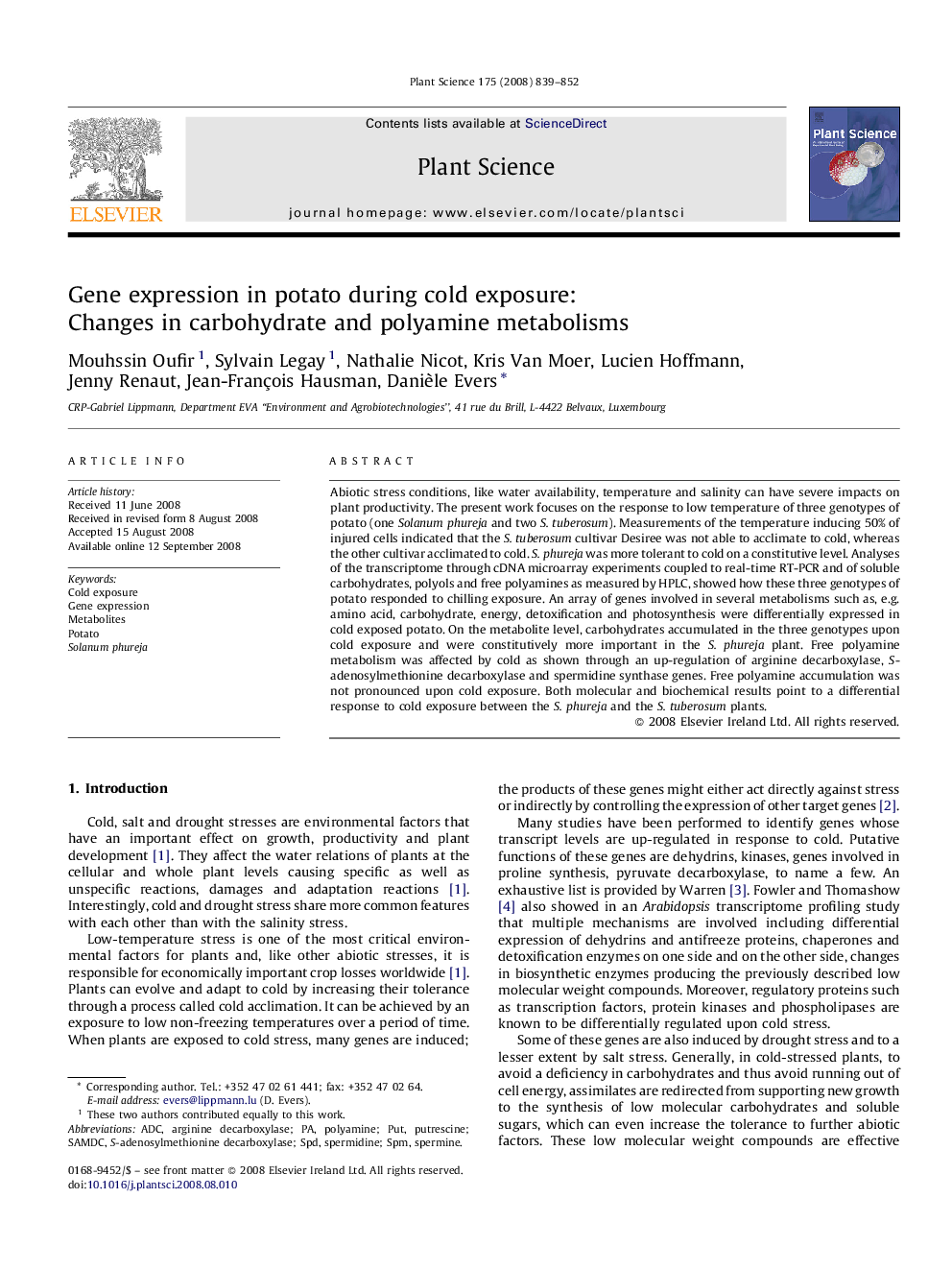| Article ID | Journal | Published Year | Pages | File Type |
|---|---|---|---|---|
| 2018427 | Plant Science | 2008 | 14 Pages |
Abiotic stress conditions, like water availability, temperature and salinity can have severe impacts on plant productivity. The present work focuses on the response to low temperature of three genotypes of potato (one Solanum phureja and two S. tuberosum). Measurements of the temperature inducing 50% of injured cells indicated that the S. tuberosum cultivar Desiree was not able to acclimate to cold, whereas the other cultivar acclimated to cold. S. phureja was more tolerant to cold on a constitutive level. Analyses of the transcriptome through cDNA microarray experiments coupled to real-time RT-PCR and of soluble carbohydrates, polyols and free polyamines as measured by HPLC, showed how these three genotypes of potato responded to chilling exposure. An array of genes involved in several metabolisms such as, e.g. amino acid, carbohydrate, energy, detoxification and photosynthesis were differentially expressed in cold exposed potato. On the metabolite level, carbohydrates accumulated in the three genotypes upon cold exposure and were constitutively more important in the S. phureja plant. Free polyamine metabolism was affected by cold as shown through an up-regulation of arginine decarboxylase, S-adenosylmethionine decarboxylase and spermidine synthase genes. Free polyamine accumulation was not pronounced upon cold exposure. Both molecular and biochemical results point to a differential response to cold exposure between the S. phureja and the S. tuberosum plants.
